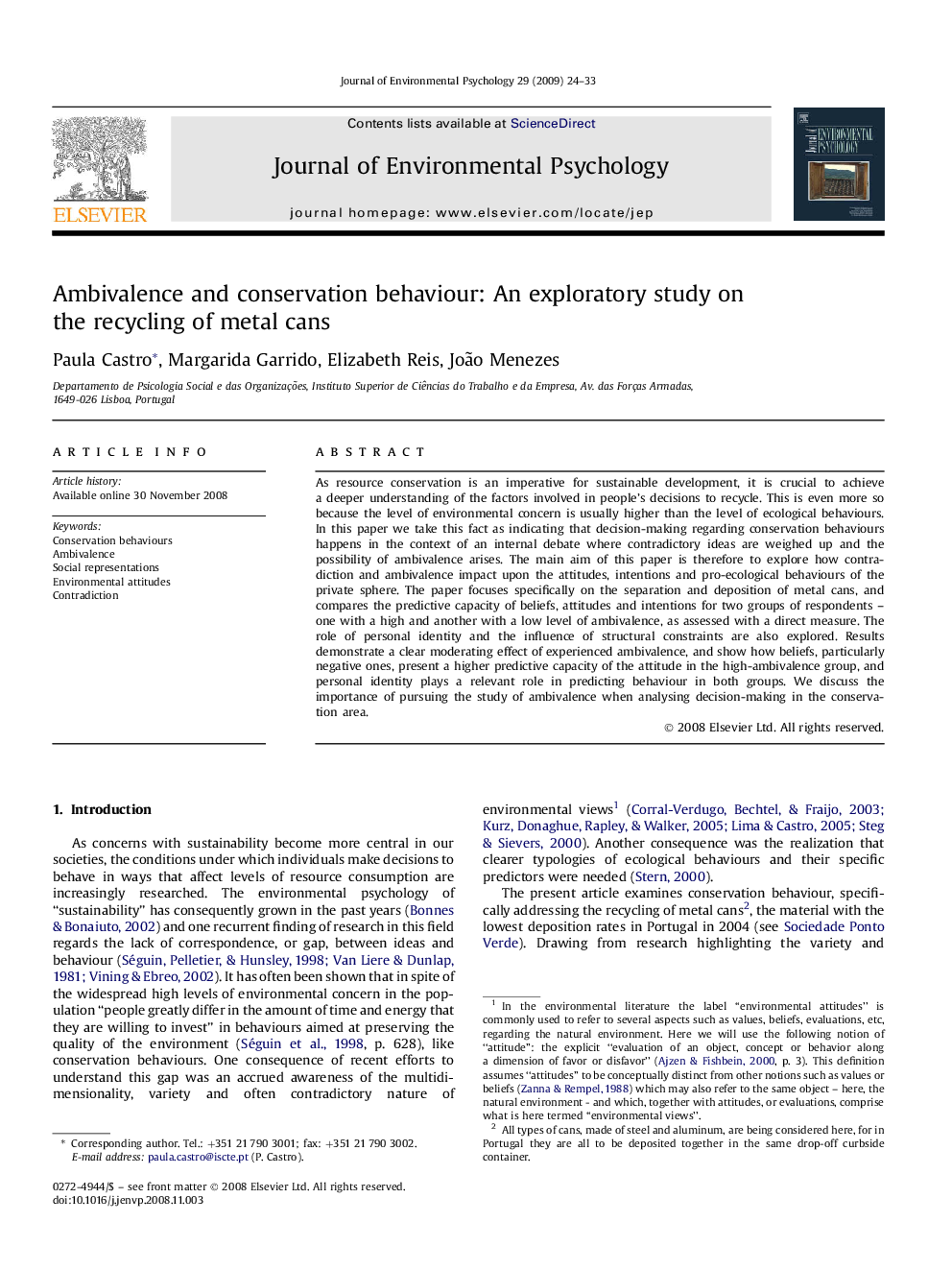| کد مقاله | کد نشریه | سال انتشار | مقاله انگلیسی | نسخه تمام متن |
|---|---|---|---|---|
| 885826 | 912848 | 2009 | 10 صفحه PDF | دانلود رایگان |

As resource conservation is an imperative for sustainable development, it is crucial to achieve a deeper understanding of the factors involved in people's decisions to recycle. This is even more so because the level of environmental concern is usually higher than the level of ecological behaviours. In this paper we take this fact as indicating that decision-making regarding conservation behaviours happens in the context of an internal debate where contradictory ideas are weighed up and the possibility of ambivalence arises. The main aim of this paper is therefore to explore how contradiction and ambivalence impact upon the attitudes, intentions and pro-ecological behaviours of the private sphere. The paper focuses specifically on the separation and deposition of metal cans, and compares the predictive capacity of beliefs, attitudes and intentions for two groups of respondents – one with a high and another with a low level of ambivalence, as assessed with a direct measure. The role of personal identity and the influence of structural constraints are also explored. Results demonstrate a clear moderating effect of experienced ambivalence, and show how beliefs, particularly negative ones, present a higher predictive capacity of the attitude in the high-ambivalence group, and personal identity plays a relevant role in predicting behaviour in both groups. We discuss the importance of pursuing the study of ambivalence when analysing decision-making in the conservation area.
Journal: Journal of Environmental Psychology - Volume 29, Issue 1, March 2009, Pages 24–33